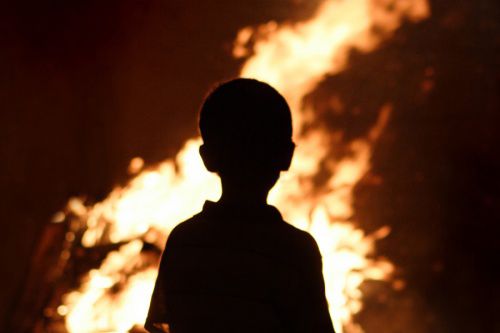A U.S. designation of genocide for ISIS’ actions would offer prompt and significant support to the religious minorities it has targeted, said one researcher, warning that history cautions against inaction. “It is striking what a difference that word makes,” Gregory Stanton, president of Genocide Watch and a research professor at George Mason University, told the House Subcommittee on Africa, Global Health, Global Human Rights, and International Organizations in his Dec. 9 testimony on Capitol Hill. Stanton’s group studied past use of the terms “genocide” and “ethnic cleansing” in four previous genocides: Rwanda, Bosnia, Kosovo, and Darfur. They found that if the term “ethnic cleansing” was used to describe atrocities against an ethnic or religious group, no action was taken to stop the violence. However, if the term “genocide” was used publicly, action was subsequently taken to stop the atrocities. “The reason why it is so powerful,” he continued, “is that ‘genocide’ actually means the destruction of a people.” He added that it “therefore impoverishes the entire human race,” he added, and is a “crime against the entire future of the human race.” “Our conclusion as genocide scholars is that when lesser terms, weaker terms are used, it is a sure indicator of an unwillingness to act,” Stanton said. The hearing took place as the State Department is soon expected to designate ISIS’ atrocities inflicted on the Yazidis in the Nineveh region of Iraq as genocide, based mainly upon a Holocaust Museum report. According to reports, Christians, Shi’a Muslims, and other ethnic and religious minorities in Iraq and Syria will not be listed as victims of genocide by ISIS. A group of legal experts, religious leaders and other advocates wrote a letter to Secretary of State John Kerry on Dec. 4, asking him to a briefing with a delegation on why ISIS’ campaign against Christians in Iraq and Syria is, in fact a genocide. ISIS has waged genocide against not only Yazidis, but also Christians, Shi’a Muslims, and Turkmen and Shabak communities in Iraq and Syria, said the independent, bipartisan U.S. Commission on International Religious Freedom, a religious liberty watchdog that makes policy recommendations to the State Department. On Dec. 7, the commission urged the administration to make a genocide designation for all those communities. “We have adequate proof already of the intent to commit genocide by ISIS against Christians and against Shi’a Muslims,” Stanton stated in his testimony. And Congress should consider special funding to investigate for further evidence of genocide in Syria and Iraq, suggested Carl Anderson, Supreme Knight of the Knights of Columbus, before the House subcommittee. A prompt genocide designation would also give prioritization to the resettlement of Christian refugees, many of who cannot be resettled in the U.S. because they avoid the U.N. refugee camps out of security concerns, and thus do not register as refugees. The U.S. bases its resettlement process off of referrals by the U.N.’s refugee agency, UNHCR. “Religious minorities do not feel safe in the camps, and therefore if the process hinges on being in the camps, we have to find alternative mechanisms to go out and register these people outside of the camps,” Anderson said. “That’s why the designation of genocide is so important because it gives priority to these vulnerable minorities,” he added, many of who are stuck in neighboring countries. They have had their homes destroyed and communities occupied and could wait years to obtain a visa. One of the objections raised to a genocide designation for Christians is that they are theoretically considered “People of the Book” and therefore given an option by ISIS invaders to remain in their communities if they pay a jizya tax. While they would receive second-class status, they would not be forced to flee, convert to Islam, or be killed. The Holocaust Museum report — upon which the State Department will reportedly base its designation — noted this, Stanton said. However, this concept is “an ISIS lie,” he said. “The truth is, the ISIS tax is so high that few can pay it, and so they’re beheaded, or even more likely, crucified if they do not renounce their faith in Jesus Christ and convert to Islam.” In his written testimony, Stanton explained that history shows the importance of promptly recognizing a genocide when it occurs. For example, the U.S. and other countries for years referred to the atrocities committed in Bosnia as “ethnic cleansing.” Following the Srebrenica massacre in July, 1995, however, a NATO conference took place days later and NATO began bombing Serbian forces in late August. The Bosnian civil war soon ended. Atrocities in Kosovo were also referred to as “ethnic cleansing” before the U.S. war crimes ambassador told of “indicators of genocide” on April 7, 1999. Belgrade was bombed promptly afterward, Serbia soon surrendered and NATO subsequently occupied Belgrade. The International Criminal Tribunal for the former Yugoslavia later convicted six Serbian leaders for crimes against humanity. Photo Credit: Evgeni Gitlits via www.shutterstock.com.

